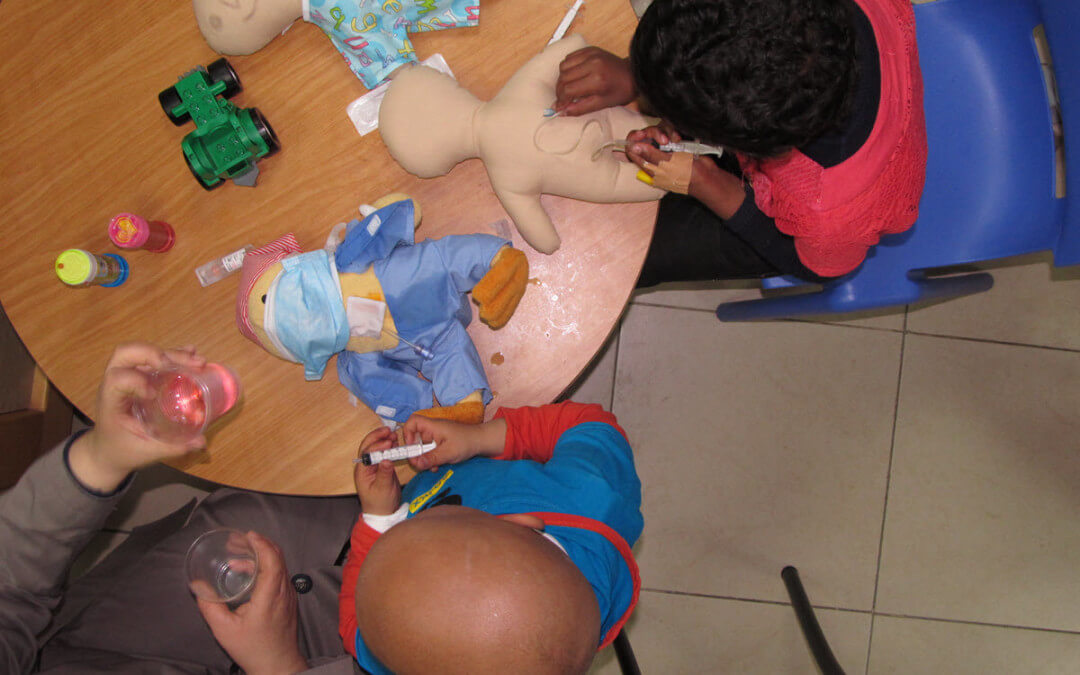
Children at Augusta Victoria Hospital in Jerusalem play with “Chemo Ducks”—a specially designed stuffed duck that has a port to help show children what to expect during their chemotherapy treatments.
It’s a common scenario. Somehow in conversation my affiliation with the Standish Foundation for Child and Family Centered Healthcare comes up. People ask: “That sounds amazing! So, what exactly do you do?” Or some derivative of it.
I’ve learned to start from the beginning. To understand Standish, you must first understand child life as a profession and practice.
Child Life is, in a nutshell, the practice of making healthcare less traumatic for children and their families. “Children are not little adults” is a phrase used widely in different areas and for different applications, but is very appropriate in explaining child life. Children simply can’t understand or process information the way adults do. When they are scared or in pain, they cannot apply logic or rationalize to make themselves feel better or less afraid about a situation. But, child life practices introduce coping mechanisms that can help.
Medical play for instance is a great way to show children what they can expect and to illustrate, in terms they understand or even non-verbally, the purpose behind a procedure such as starting an IV.
Child life is almost equally important for families. Parents and siblings of children with chronic illnesses have a lot to deal with. Child life takes that into consideration and advocates for quality of life and comfort for every member of the family.
To further explain, here is an official description of a child life specialist from the Child Life Council: hyperlink: https://www.childlife.org/The%20Child%20Life%20Profession/
Child life specialists are trained professionals with expertise in helping children and their families overcome life’s most challenging events.
Armed with a strong background in child development and family systems, child life specialists promote effective coping through play, preparation, education, and self-expression activities. They provide emotional support for families, and encourage optimum development of children facing a broad range of challenging experiences, particularly those related to healthcare and hospitalization. Because they understand that a child’s wellbeing depends on the support of the family, child life specialists provide information, support and guidance to parents, siblings, and other family members. They also play a vital role in educating caregivers, administrators, and the general public about the needs of children under stress.
If you have additional questions about child life, please leave them in the comments below.
